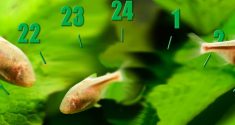Researchers have long known that the circadian rhythm changes as we age. New evidence suggests declining polyamine levels may be tied to this change.
Our circadian clocks change throughout our life span. While young people tend to sleep well and feel well-rested, elderly people are more likely to have trouble falling and staying asleep. This decline in quality sleep contributes to fatigue, more frequent napping and other issues we associate with age. New research suggests that falling levels of polyamines, a group of metabolites that naturally decline over our life span, may be tied to sleep-related changes.
What Are Polyamines?
Polyamines are metabolites of other cell processes, but they are also important in a variety of cellular reactions in almost all life forms. They assist in tissue growth and help to control the transport of nutrients into a cell. In plants, they help to create senescence, which is the slowing of growth and metabolism as a plant ages and nears the end of its programmed life span. Polyamines are important in the aging of plants but just as important to this process in animals. As humans and other mammals age, our polyamine levels slowly decrease. Researchers believe that this may be a partial cause of some diseases associated with aging, such as Alzheimer’s disease. A new study has confirmed that these declining polyamine levels are related to another well-known symptom of aging: sleep disturbances. In particular, lowered amounts of this metabolite may lengthen the circadian rhythm.
The Effect of Polyamines on the Circadian Rhythm
Polyamines are key regulators of cell growth and proliferation, affecting almost every cell in the human body. Because they are metabolites of other cell processes, they may decline in old age simply due to lower amounts of cell growth and the general slowing of cell metabolic processes. However, these declining levels can affect not just our cells, but our sleep habits. Polyamines appear to affect the interactions of proteins that regulate the circadian rhythm. Lower amounts create less interaction between key proteins associated with sleep so that it takes longer for the cellular changes necessary for sleep to happen. This lengthens the circadian rhythm in elderly people and others with declining polyamines.
Polyamine Supplementation and Aging
Researchers also found that supplementing polyamines reverses the lengthened circadian rhythm associated with age-related sleep disorders. This presents hope for new treatments for sleep disorders associated with aging, as well as for age-related diseases that also appear to be linked to declining levels of this metabolite. However, more studies will be needed before humans can safely be given this therapy. Although polyamines are important to sleep, their role in cell proliferation suggests that supplementation might increase tumor growth. Researchers are currently exploring whether this is the case.
New studies are constantly looking at the intricate cell mechanisms and biochemicals underlying the process of aging. While we will probably never be able to completely prevent or reverse aging, new discoveries offer hope for treatment of age-related illness and ultimately leading longer and healthier lives.







